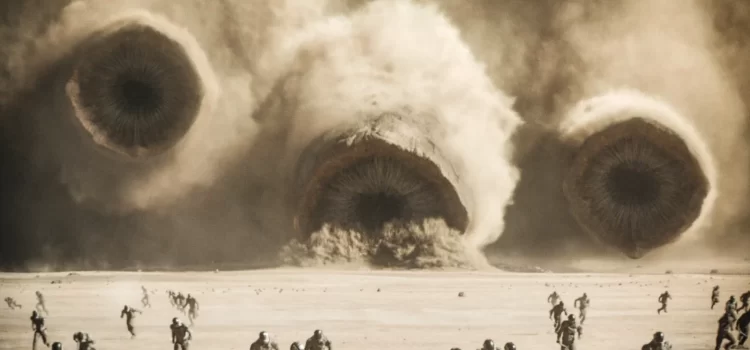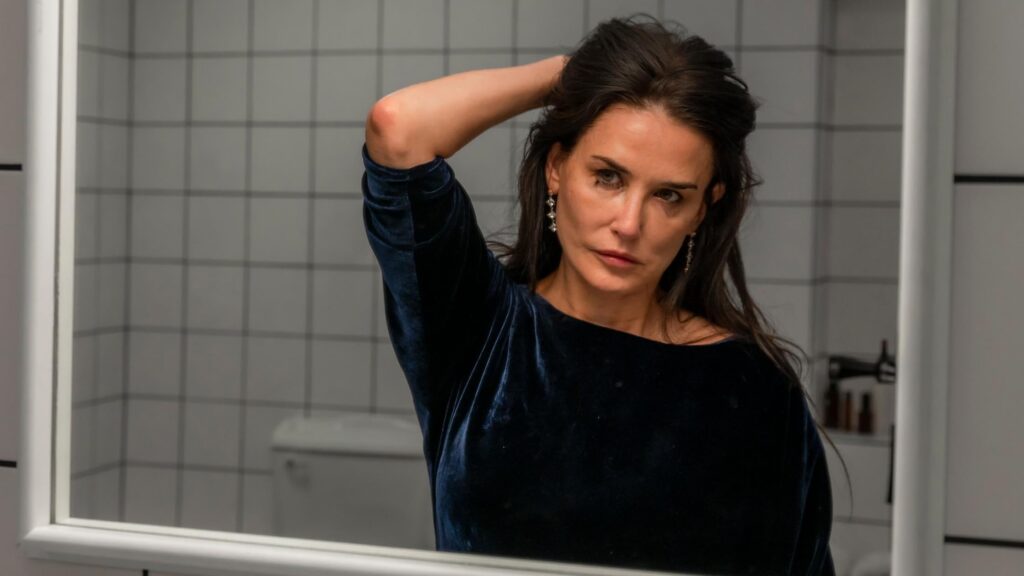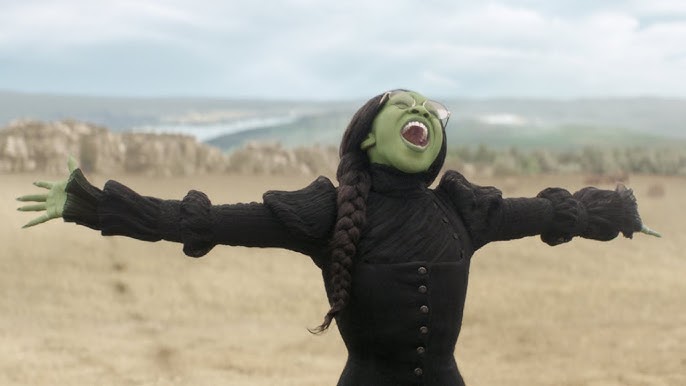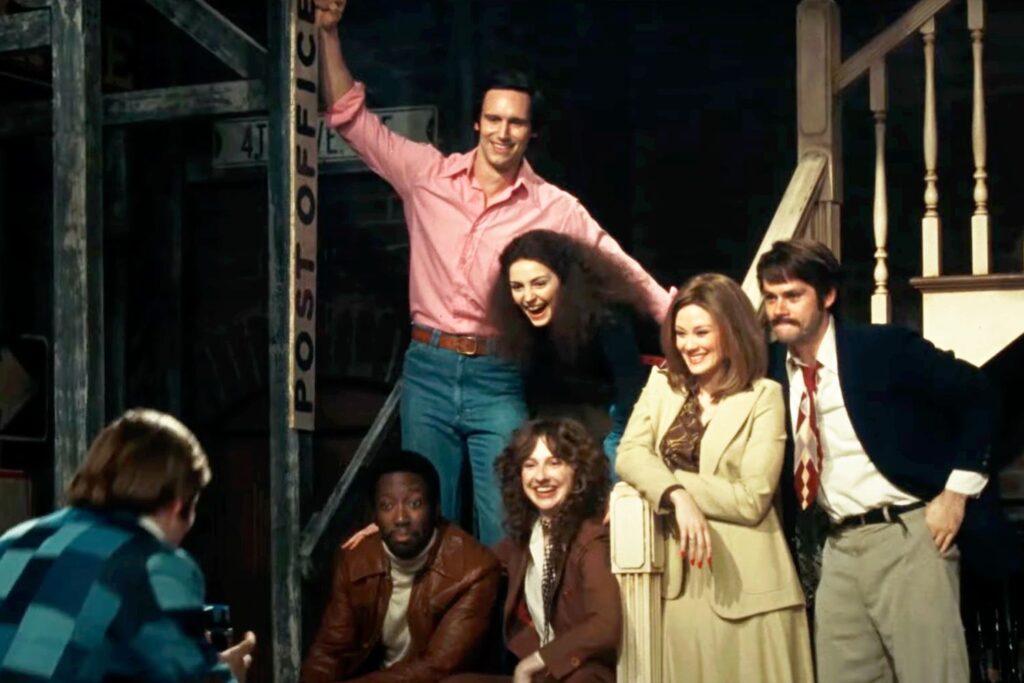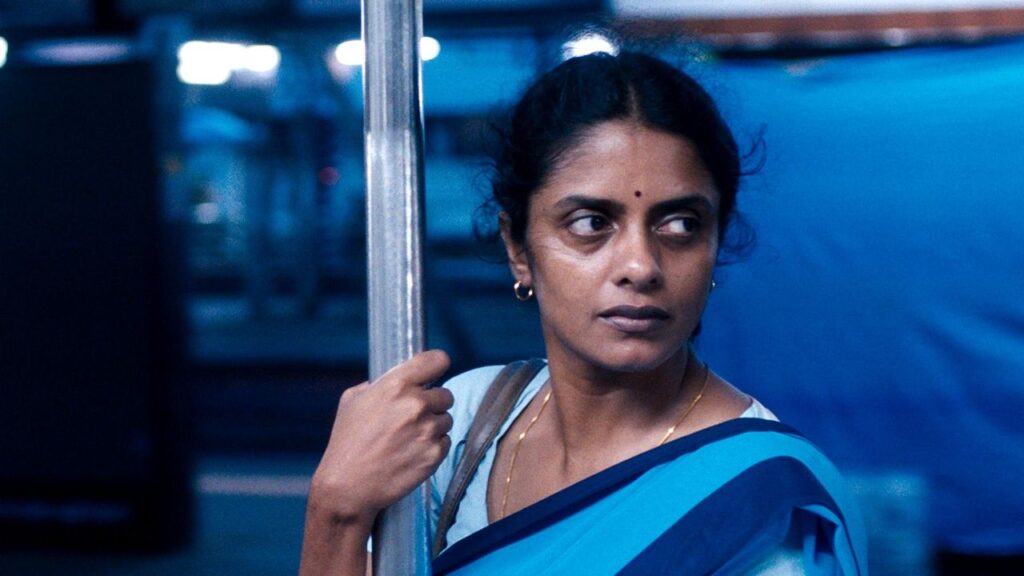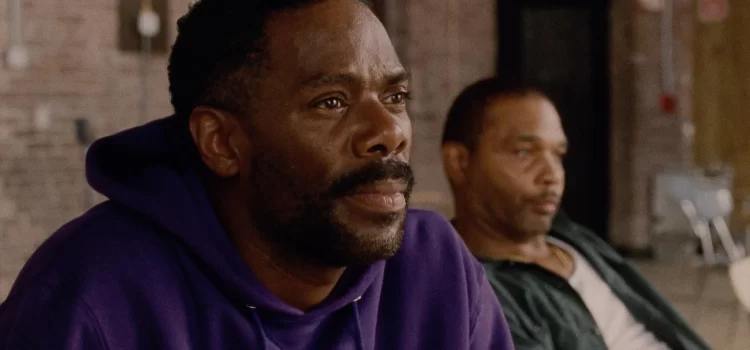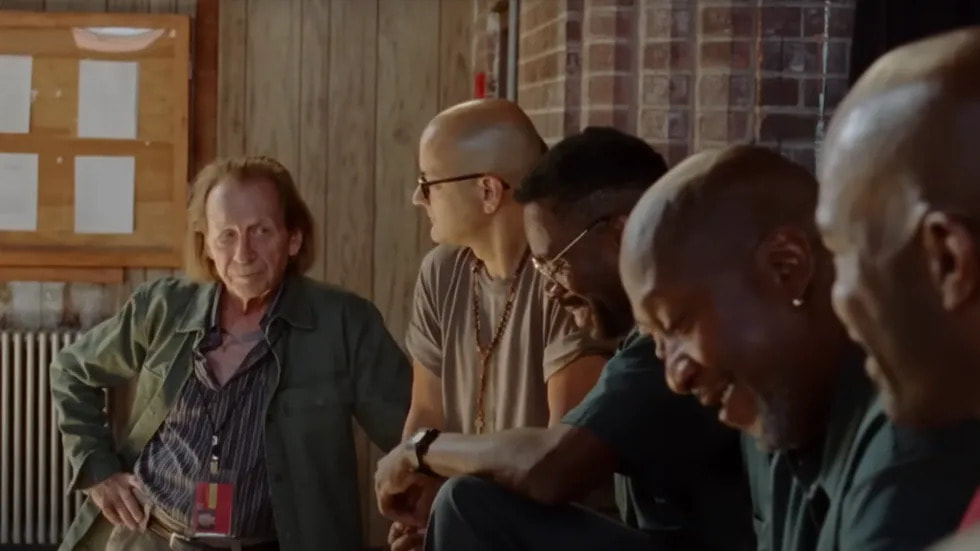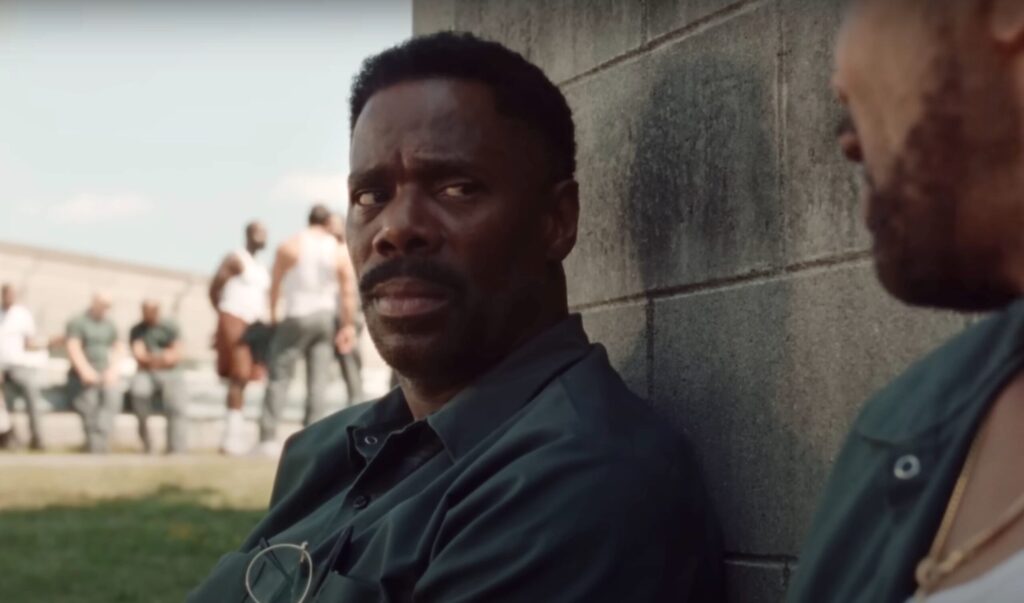By Lynn Venhaus
Themes? Trends? Moments? How to sum up a year in cinema, when hundreds of films are released in theaters and on streaming to satisfy a diverse public. What gets people out of the house and into a theater when they’re buying a ticket? I’m curious.
Above all with me is storytelling. Then we’ll see about the bells and whistles, the “experience” enhancement, and who’s part of the team on screen and off. The very best feeling is discovering the small gems or being dazzled by the big swings, those who won’t play it safe.
And this year, those were evident in a very erratic year where titles like “Civil War” and “Challengers” were divisive. Everyone has their reasons for why a film clicks.
Two of the themes I responded to were the transformative power of the arts – “Sing Sing,” “Ghostlight,” “A Complete Unknown”) and women trying to hold on to their dignity when people try to take it away (“Anora,” “The Substance,” “The Last Showgirl”).
So, here are the films that connected with me. While I’ve seen about 150, there are films I’ve yet to see that could have made a difference on my annual “best” list, but all in the timing.
I am surprised as much as everyone how the year landed, and I will likely need to re-watch a few too. What always happens during FYC season, when the studios barrage us with content, viewings can be rushed and not digested appropriately.
Without further ado, and I’ve prolonged this annual opus long enough trying to cram more in, my very personal list of what I liked in 2024. To those who attempted to carve a new direction, try a different approach, reach people through our shared humanity, I salute you.

Top Ten Films
1. Dune: Part Two – A masterful melding of massive spectacle, heartfelt high-stakes performances, and astonishing visual artistry, this follow-up to the 2021 adaptation of Frank Herbert’s 1965 best-selling science fiction novel of all-time expanded the mythic hero’s journey to its full potential. This chronicle of a feudal interstellar society opened Feb. 25, and director Denis Villeneuve’s enthralling cinematic marvel far surpassed any other epic-wannabe this year.
2. The Seed of the Sacred Fig – Boldly showing political turmoil and paranoia in Iran through a fictional family’s experiences, director Mohammad Rasoulof challenges the totalitarian state by depicting the corruption that led the current situation. He uses a judge’s wife and daughters as people who come to learn what’s really happening as society crumbles. It’s a powerfully told, well-acted stunning achievement.
3. A Complete Unknown – Anchored by Timothee Chalamet’s brilliant immersive portrayal of a young Bob Dylan, this exhilarating, extraordinary film recreates a period when art, music and culture came together to significantly define the 1960s. The actors portraying Joan Baez, Pete Seeger and Johnny Cash are also in top form. Whether you like Dylan’s music or not is immaterial – director James Mangold makes us feel his impact, and it’s glorious.
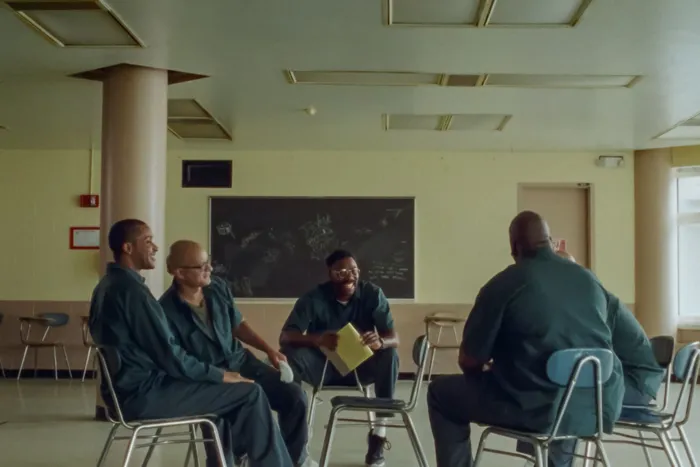
4. Sing Sing – Colman Domingo is at his career-best as a wrongly convicted man incarcerated at Sing Sing prison, who has found redemption through the Rehabilitation Program for the Arts. With an ensemble cast including former prisoners, this drama feels like part of a documentary. With its play presentation framework, the film resonates emotionally in a moving example of the transformative power of the arts.
5. Conclave – A religious-political thriller with a page-turning plot, this procedural to elect a Catholic church pontiff unfolds like palace intrigue. Impeccably presented and acted by an ace ensemble lead by Ralph Fiennes, director Edward Berger reveals the human drama involved in power plays, mysterious maneuvers and shattering secrets. It’s an outstanding film in every way.
6. A Real Pain – Complicated family ties and honoring Jewish heritage are explored in this warm and genuine comedy-drama about two once-close cousins reconnecting on a Holocaust tour. Its power is disarming, and Jesse Eisenberg’s nimble narrative gives Emmy winner Kieran Culkin another opportunity to shine as he shows the effect of grief and loss on a fragile lost soul. This is a rare film that eloquently speaks in an intimate but universal way.
7. Emilia Perez – An exhilarating wild ride that puts romance, desire, redemption, humor, and a dark side all into play. Fearless writer-director Jacques Audiard’s bold fever dream colors outside the genre lines, for its an unconventional cartel crime thriller that’s a musical, in Spanish language, operatic in tone and organic in its delivery of songs and dance. Four women seek happiness on their own terms – Karla Sofia Gascon, Zoe Saldana, Selena Gomez and Adriana Paz — and the result is bravura filmmaking.
8. Wicked – A dazzling spectacle based on the 2003 Broadway musical fantasy, this timeless tale of friendship and love was a true big-screen movie event. With eye-popping production values, sensational performances, stunning costumes, and those thrilling Stephen Schwartz songs, this vivid re-imagining is only the first half. Yes, it’s too long, but it is an absolute must-see.

9. September 5 – The 1972 Summer Olympics in Munich became a horrific breaking news event on September 5, when Israeli wrestling players were taken hostage by a Palestinian terrorist group. That thrust the ABC Sports crew into action covering the event as the world’s eyes and ears. This intense and riveting film, with its crackerjack ensemble cast in the broadcast control room, recreates that day from their perspective in astonishing detail.
10. Saturday Night – It’s a kinetic snapshot of what happened that fateful wild and crazy night when “Saturday Night Live” premiered on Oct. 11, 1975. As producer Lorne Michaels, Gabriel LaBelle corrals the best ensemble cast of the year. Writer-director Jason Reitman and co-writer Gil Kenan capture the frenetic pace and the backstage lunacy that forever changed late-night comedy.
Honorable Mention
All We Imagine as Light
Anora
Exhibiting Forgiveness
The Fall Guy
Fly Me to the Moon
Ghostlight
His Three Daughters
Hundreds of Beavers
The Last Showgirl
Maria
My Old Ass
Nickel Boys
The Performance
The Piano Lesson
Super/Man: The Christopher Reeve Story
Thelma
Wallace & Gromit: Vengeance Most Foul
The Wild Robot
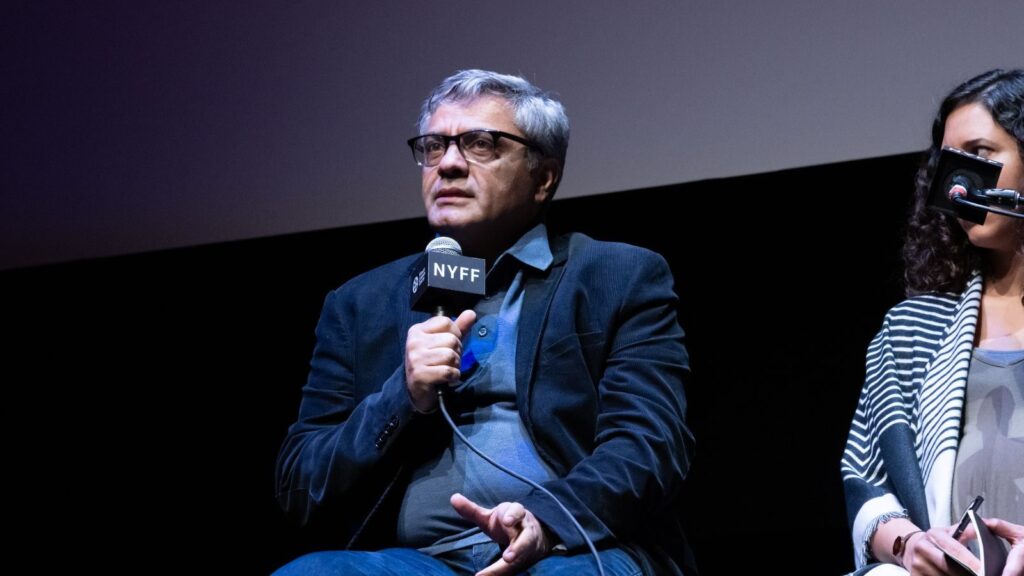
Best Director
Denis Villeneuve “Dune: Part Two”
Edward Berger “Conclave”
Jacques Audiard ‘Emilia Perez”
Mohammad Rasoulof “The Seed of the Sacred Fig”
James Mangold “A Complete Unknown”
Payal Kapadia “All We Imagine as Light”
Best Actor
Colman Domingo “Sing Sing”
Timothee Chalamet “A Complete Unknown”
Ralph Fiennes “Conclave”
Hugh Grant “Heretic”
Sebastian Stan “A Different Man” and “The Apprentice”
Adrien Brody “The Brutalist”
Jeremy Piven “The Performance”
Jude Law “The Order”
Keith Kupferer “Ghostlight”
Andre Holland “Exhibiting Forgiveness”

Best Actress
Saoirse Ronan “The Outrun”
Angelina Jolie “Maria”
Marianne Jean-Baptiste “Hard Truths”
Karla Sofia Gascon “Emilia Perez”
Cynthia Erivo “Wicked”
Fernanda Montenegro “I’m Still Here”
Mikey Madison “Anora”
Pamela Anderson “The Last Showgirl”
June Squibb “Thelma”
Tilda Swinton “The Room Next Door”
Best Supporting Actor
Kieran Culkin “A Real Pain”
John Magaro “September 5”
Stanley Tucci “Conclave”
Jeremy Strong “The Apprentice”
Denzel Washington “Gladiator 2”
Adam Pearson “A Different Man”
Edward Norton “A Complete Unknown”
Clarence Maclin “Sing Sing”
Yura Borisov “Anora”
Richard Roundtree “Thelma””
Best Supporting Actress
Zoe Saldana “Emilia Perez”
Aunjanue Ellis-Taylor “Nickel Boys”
Danielle Deadwyler “The Piano Lesson”
Ariana Grande “Wicked”
Monica Barbaro “A Complete Unknown”
Elle Fanning “A Complete Unknown”
Isabella Rossellini “Conclave”
Tilda Swinton “Problemista”
Natasha Lyonne “His Three Daughters”
Michelle Austin “Hard Truths”

Best Ensemble
“Saturday Night”
“Dune: Part Two”
“Conclave”
“Wicked”
:”September 5
“The Piano Lesson”
“Sing Sing”
“Anora”
“Ghostlight’
“His Three Daughters”
“The Seed of the Sacred Fig”
Best Original Screenplay
Jesse Eisenberg “A Real Pain”
Mohammad Rasoulof “The Seed of the Sacred Fig”
Jason Reitman and Gil Kenan “Saturday Night”
Megan Park “My Old Ass”
Azazel Jacobs “His Three Daughters”
Kelly O’Sullivan “Ghostlight”
Moritz Binder, Tim Fehlbaum, Alex David “September 5”
Adam Elliot “Memoir of a Snail”
Best Adapted Screenplay
Peter Straughan “Conclave”
Clint Bentley, Greg Kwedar, Clarence Maclin, John Divine G Whitfield “Sing Sing”
Jacques Audiard “Emilia Perez”
Shira Piven “The Performance”
Malcolm Washington “The Piano Lesson”
Barry Jenkins “The Fire Inside”

Best Cinematography
Greig Fraser “Dune: Part Two”
Lol Crawley “The Brutalist”
Jomo Fray “Nickel Boys”
Edward Lachman “Maria”
Jarin Blaschke “Nosferatu”
Best Musical Score
Daniel Blumberg “The Brutalist”
Camille and Clement Ducol “Emilia Perez”
Kris Bowers “The Wild Robot”
Volker Bertelmann “Conclave”
Jon Batiste “Saturday Night”
Best Soundtrack
A Complete Unknown
The Fall Guy
Maria
Fly Me to the Moon
Twisters
Deadpool & Wolverine
The Idea of You
Best Production Design
“The Brutalist”
“Blitz”
“Maria”
“Wicked”
“Beetlejuice Beetlejuice”
“Conclave”
“September 5”
“Dune Part Two”
“Hundreds of Beavers”
“Saturday Night”

Best Costume Design
Paul Tazewell “Wicked”
Massimo Cantini Parrini “Maria”
Colleen Atwood “Beetlejuice Beetlejuice”
Mike Cheslik “Hundreds of Beavers”
Jacqueline West “Dune: Part Two”
Danny Glicker “Saturday Night”
Mary Zophres “Fly Me to the Moon”
Best Visual Effects
Dune Part 2
Alien: Romulus
Wicked
Furiosa: A Mad Max Saga
Deadpool & Wolverine
Twisters
A Quiet Place: Day One
The Fall Guy
Beetlejuice Beetlejuice
Problemista
Best Make-Up and Hair
Dune: Part 2
Wicked
Saturday Night
The Substance
A Different Man
Beetlejuice Beetlejuice

Juvenile Performances
Maisy Stella “My Old Ass”
Elliott Heffernan “Blitz”
Alyla Browne “Furiosa: A Mad Max Saga”
Katherine Mallen Kupferer “Ghostlight”
Izaac Wang “Didi”
Ian Foreman “Exhibiting Forgiveness”
Cailee Fleming “IF”
William A. Fitzgerald “Ezra”
Nico Parker “Suncoast”
Blake Cameron James and Gian Knight Ramirez “We Grown Now”
Best Comedy
Hundreds of Beavers
Saturday Night
My Old Ass
Fly Me to the Moon
Thelma
Wallace & Gromit: Vengeance Most Fowl
Memoir of a Snail
Stunt Work
The Fall Guy
Furiosa: A Mad Max Saga
Gladiator 2
Dune Part 2
Deadpool & Wolverine
Best Animated Feature
The Wild Robot
Wallace and Gromit: Vengeance Most Fowl
Flow
Memoir of a Snail
Inside Out 2
Piece by Piece

Best Documentary Feature
Sugarcane
Super/Man: The Christopher Reeve Story
Black Box Diaries
Will & Harper
Dahomey
Frida
Billy and Molly: An Otter Love Story
Music by John Williams
Stopping the Steal
The Last of the Sea Women
Soundtrack to a Coup d’Etat
Honorable Mention: Made in England: The Films of Powell and Pressburg, To Russia with Lev, The Truth vs. Alex Jones, The Greatest Night in Pop, I Am Celine Dion, The Remarkable Life of Ibelin,
Best International Feature
The Seed of the Sacred Fig
Emilia Perez
All We Imagine As Light
I’m Still Here
Vermiglio
Best Horror Film
Longlegs
A Quiet Place: Day One
Late Night with the Devil
Heretic
The Substance

Best Scenes
Civil War – “What kind of American are you?”
Dune: Part Two – Riding the Sandworm
Furiosa – War Rig battle
His Three Daughters – Dad’s Chair
Challengers – The Churros
Wicked – Defying Gravity
Hard Truths – Mother’s Day brunch

Lynn (Zipfel) Venhaus has had a continuous byline in St. Louis metro region publications since 1978. She writes features and news for Belleville News-Democrat and contributes to St. Louis magazine and other publications.
She is a Rotten Tomatoes-approved film critic, currently reviews films for Webster-Kirkwood Times and KTRS Radio, covers entertainment for PopLifeSTL.com and co-hosts podcast PopLifeSTL.com…Presents.
She is a member of Critics Choice Association, where she serves on the women’s and marketing committees; Alliance of Women Film Journalists; and on the board of the St. Louis Film Critics Association. She is a founding and board member of the St. Louis Theater Circle.
She is retired from teaching journalism/media as an adjunct college instructor.

